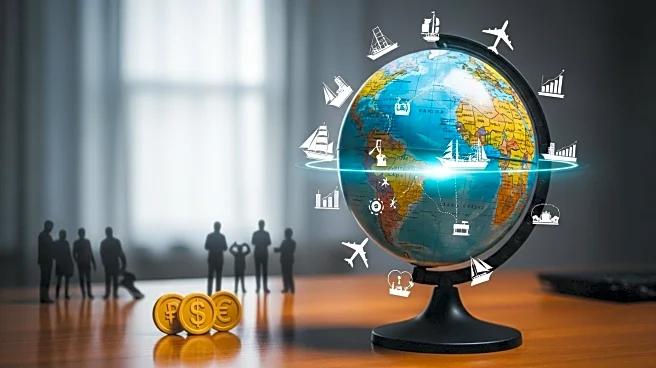What is the story about?
What's Happening?
The International Monetary Fund (IMF) has published an article discussing the limitations of focusing solely on tariffs in trade policy debates. The article argues that tariffs, while visible and politically contentious, are just one of many tools that governments use to influence trade relationships. It highlights that internal economic policies, such as currency manipulation and financial repression, can have similar effects on trade balances by shifting income from consumers to producers. The article emphasizes the need for a broader understanding of trade policy that considers how economies allocate income internally, affecting both domestic consumption and production.
Why It's Important?
The discussion is significant as it challenges the conventional focus on tariffs in trade policy, suggesting that other internal economic policies may have more profound impacts on trade balances. This perspective could influence how policymakers approach trade negotiations and economic reforms, potentially leading to more comprehensive strategies that address underlying economic imbalances. By understanding the broader mechanisms at play, countries may better manage their trade relationships and address persistent trade surpluses or deficits, impacting global economic stability and growth.
What's Next?
The article suggests that countries need to reevaluate their internal economic structures to address trade imbalances effectively. This may involve shifting policies to balance consumption and production more equitably, potentially leading to changes in fiscal, regulatory, and labor policies. As countries consider these broader trade policy implications, there may be increased dialogue and collaboration at international forums to develop more holistic approaches to global trade.
Beyond the Headlines
The article implies that focusing solely on tariffs may lead to counterproductive trade policies that do not address the root causes of imbalances. It suggests that a deeper understanding of internal economic structures and their impact on trade could lead to more sustainable and equitable global trade practices.
















